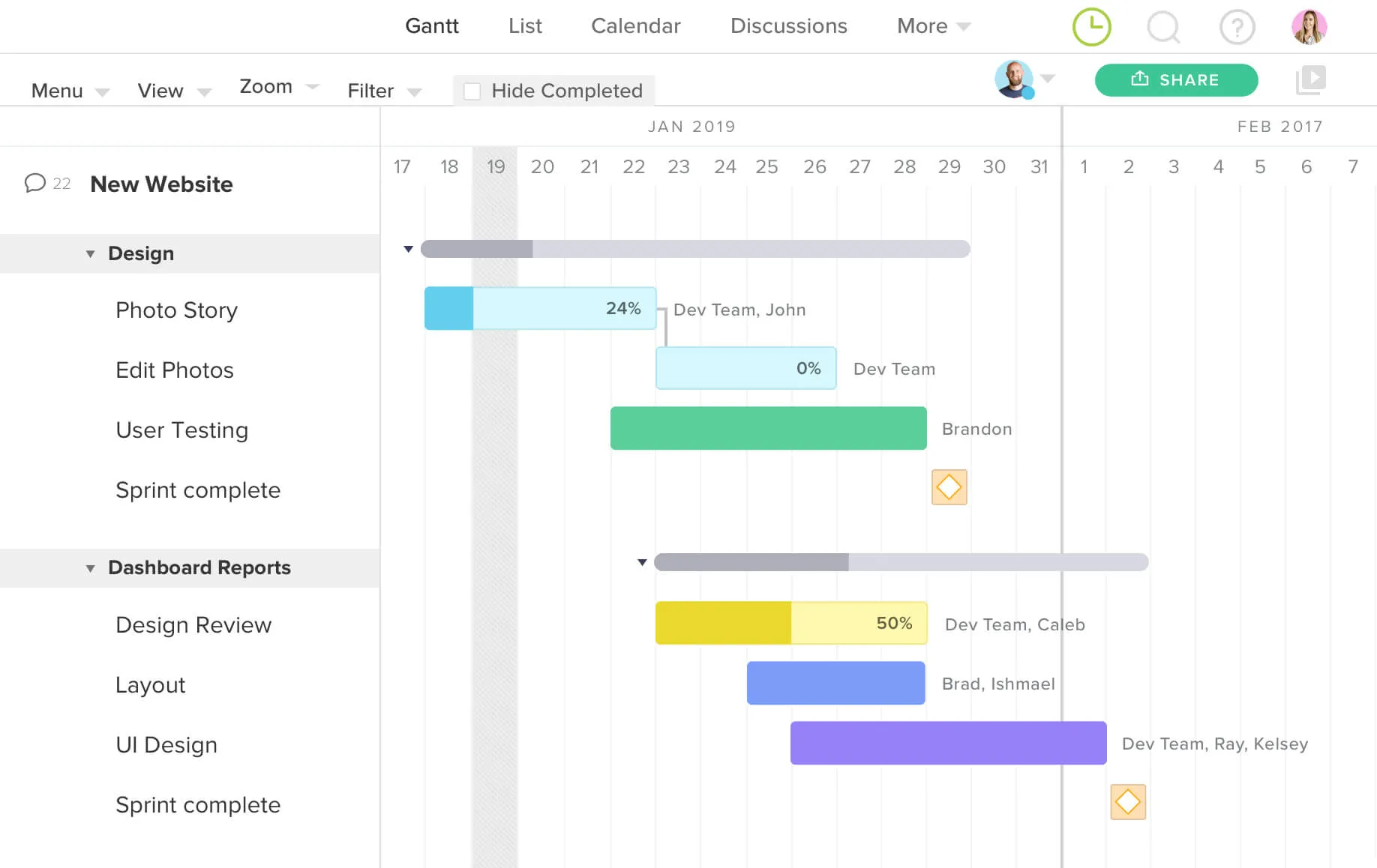New!
Still juggling construction schedules in spreadsheets? Meet TeamGantt’s Construction Edition.
Book a demo
If you’ve set your sights on PMP certification, you’ve got a bright future ahead! But getting PMP-certified isn’t as simple as passing a test. You’ll need real-world project management education and experience under your belt so you can prove you’ve got what it takes to be a PMP.
Here’s a quick rundown of PMP requirements—plus the costs you can expect to pay—so you can be sure you’re prepared when you’re ready to apply for certification. We’ll also give you a brief look into the PMP exam itself.
Let’s start with the most basic question: Who can take the PMP exam?
PMP certification eligibility is based on the following prerequisites:
PMP certification requirements vary based on your level of education. If you graduated from college with a bachelor’s degree, for example, you can qualify to take the PMP exam with less on-the-job project management experience.
Here’s a breakdown of PMI’s PMP requirements:
Taking the PMP certification exam does entail a few costs. And you’ll save more in the long run if you become a PMI member—especially if you plan to maintain and renew your PMP certification on an ongoing basis.
Here’s a quick snapshot of PMP certification exam costs for PMI members compared to non-members:
Just keep in mind that PMP certification costs go beyond the exam itself. Expect to pay for study materials and any training required to earn the PDUs required to be eligible to apply for the PMP certification exam.
Now that we’ve laid out who can take the PMP exam and how much it costs, let’s take a closer look at the PMP exam itself so you know what to expect.
The PMP certification exam is administered by the Project Management Institute (PMI). Once your PMP certification application is approved and you’ve paid the PMP exam cost, you’ll receive an email from the PMI with instructions and a PMP certification eligibility code for scheduling your exam online or at a testing center. Be sure to schedule and take the PMP certification exam within 1 year so you don’t have to reapply and start the process all over again.
The PMP exam is made up of 180 questions, and you’ll have 230 minutes to complete the test. The PMP exam content outline covers predictive, agile, and hybrid approaches across the following 3 domains:
If you don’t pass the test the first time, don’t worry! You can take the PMP certification exam up to 3 times in a single year.
When the confetti settles after passing your PMP certification exam, it’s time to shift to maintenance mode. Your PMP certification will be valid for the next 3 years. During that time, you’ll need to earn 60 PDUs—with a combination of project management education and activities that give back to the profession—to maintain your PMP certification.
Want to get some hands-on project management experience under your belt? Take TeamGantt for a spin. Trying it is totally free—no strings attached!
Finish projects on time and budget without breaking a sweat. Or track all your important PMP certification tasks so nothing falls through the cracks. Any way you slice it, TeamGantt makes managing projects a breeze.
Easy drag and drop features with templates for faster scheduling. Plan a project in minutes, collaborate easily as a team, and switch to calendar and list views in a single click.
Create your free plan